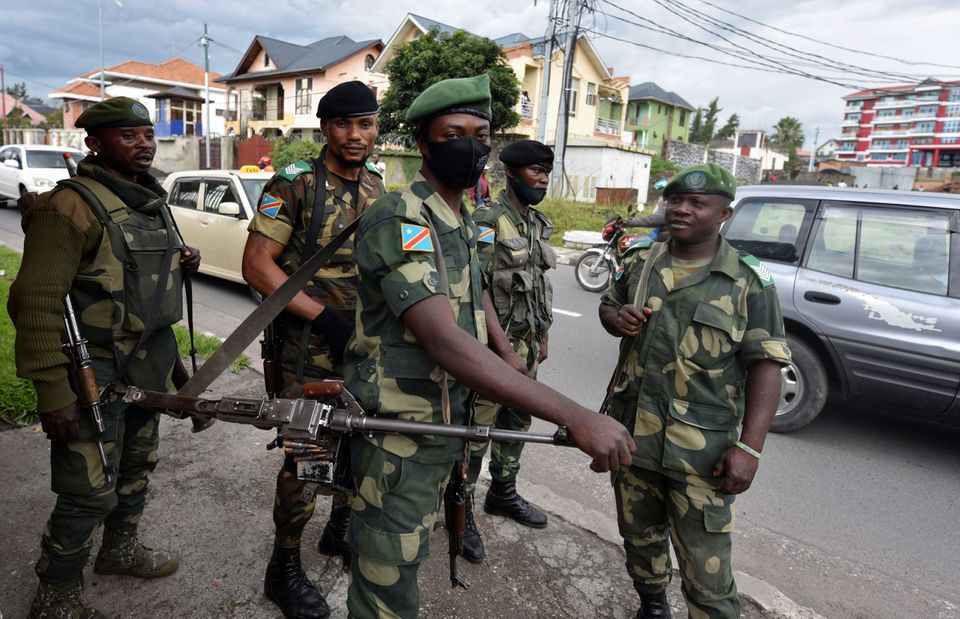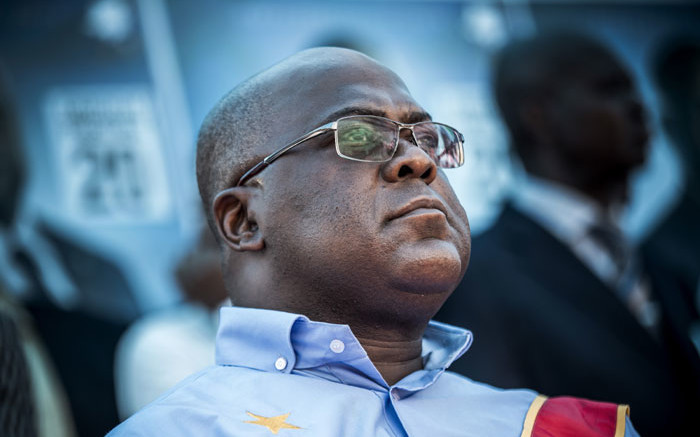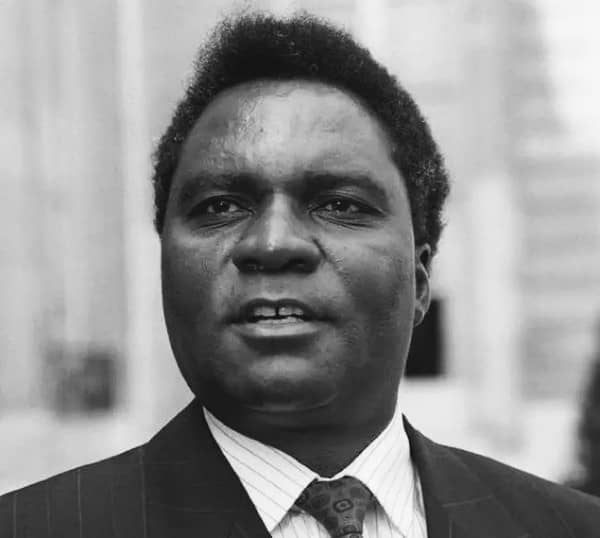Regional
10 things to know about Victoire Ingabire
.jpg-20221102100150000000.jpg)
If
you follow Rwanda’s history and politics closely, you might have come across
the name Victoire Ingabire. The 54-year-old woman is no stranger to anyone
interested in the country’s recent history. But who, really, is she?
Here are 10 things
about Ingabire, a genocide ideologue who wants the world to know her as a well
intentioned politician.
1.
Hired without qualifications
One
of the rarely known facts about Ingabire's past is how she failed national exams
and joined a nuns’ run vocational training school at Cyahinda ‘Centre de Formation des Jeunes’, to do
basket weaving and tailoring in the former Gishamvu Commune, Butare Prefecture,
now Huye District. She gained a certificate after four years, in June 1987.
Despite
her lack of qualifications, few months after completing her vocational
training, Ingabire was hired in the Customs department, then under the Ministry
of Finance.
This
was a favor from her mother’s concubine, Dr. Akingeneye Emmanuel, who was a
personal physicist of President Juvénal Habyarimana. This physicist and his
boss died together in a plane crash on April 1994.
2.
Husband’s
Dutch citizenship revoked
Notoriously
known for his double genocide ideology, Ingabire’s husband, Lin Muyizere, saw the
immigration service in the Netherland revoke his citizenship, in 2014, after
three years of enjoying njoying Dutch citizenship. This was after his role in
the 1994 genocide against the Tutsi was revealed.
As
if that was not enough to stop spreading his genocide ideology, Muyizere
continued to support his wife in advocating for double genocide propaganda.
3.
Assisted
génocidaire mother to flee justice
Nicknamed
‘the doctor of death’, Ingabire’s mother, Therese Dusabe, during the 1994
genocide against the Tutsi, executed pregnant Tutsi women in Butamwa health
center where she worked as a nurse. She often removed their fetuses and
slaughtered the new borns by hitting them against walls.
Her
atrocities drove her into exile in the Democratic Republic of Congo (DRC) after
the genocide.
Ingabire‘s
connections in DRC made it easy for her to find travel documents and assist her
mother to flee to the Netherlands. Dusabe
was tried in absentia in 2009 by Rwanda’s Gacaca courts and sentenced to life in
prison but she is still living freely in the Netherlands.
4.
Father
arrested for Genocide crimes
Pascal
Gakumba, the father of Ingabire was never ‘left behind’ in accelerating
killings during the Genocide against the Tutsi, from 1990 to 1994. After the RPF liberated Rwanda, in late
July, he was appointed Bourgemester (Mayor) of Kibirira Commune, until 1996. He
was also on a list of senior politicians who were to be Deputies in the first
post-1994 Parliament which was composed in 1996.
However,
three days before swearing, he was arrested on suspicion of taking part in the
massacre of the Tutsi in 1990, and the 1994 genocide in Kibirira where he
lived.
Gakumba
was charged for inciting people to kill their Tutsi neighbors in the Genocide. After
four years in prison he was released in 2002. He committed suicide in 2004.
5.
Headed
genocidaire movements
She
got a warm welcome in the Rassemblement Republicain pour la Democratie au
Rwanda (RDR), in 1997. Ingabire lived in the Netherlands during the Genocide.
She was nominated as RDR leader worldwide in 2000 after serving as its
coordinator in The Netherlands, since 1998.
Formed
in March 29, 1995, by the remnants of the genocidal regime, army and
Interahamwe militia in Mugunga refugee camp, in DRC, RDR’s objective was
nothing but to re-organise, re-arm, and forcefully return to Rwanda and finish
the mission of exterminating the Tutsi.
Ingabire
also headed RDR’s successor, Forces Democratique Unifies (FDU-Inkingi) since
2006. The former was a combination of number of genocidal groups aimed to
topple the RPF-led government.
6.
Double
genocide Ideology
After
living in the Netherlands for 16 years, Ingabire returned to Rwanda in January
2010 to register her genocidal party, FDU-Inkingi, and contest in the
presidential elections scheduled in August that year.
After
landing, she visited the Kigali genocide memorial centre where she delivered a
speech questioning why there is a memorial of the Genocide against the Tutsi
only while – according to her – there were Hutu victims also to be remembered.
Four
days later, on January 20, Ingabire visited the grave of Dominique Mbonyumutwa,
Rwanda’s first president. Mbonyumutwa was one of the architects of Parmehutu, or Parti
du Mouvement de l’Emancipation du Peuple Hutu, or the Party for Hutu
Emancipation, the extremist party that introduced ethnic cleansing targeting
the Tutsi. Parmehutu initiated the exterminations against the Tutsi
in 1959 and the following years.
Ingabire’s
words at the memorial site in Kigali and her visit to Mbonyumutwa’s grave, within
one week of her arrival in Rwanda, exposed her double genocide ideology and
shade light on her strong support of the Parmehutu ideology.
7.
Arrested
and tried
Ingabire’s
genocide ideology, her collaboration with terrorist groups and conspiracy
against the government, got her arrested three months after arriving in Rwanda.
In April
2010, she was arrested after being implicated by Maj Vital Uwumuremyi, a former
commander in the FDLR terror group who was intercepted trying to sneak across
the DRC – Rwanda border. Uwumuremyi was behind a terrorist organization known
as Coalition of Democratic Forces (CDF), a military wing of the FDU-Inkingi.
In
2012, Ingabire was found guilty of terrorism, genocide denial and planning to
cause state insecurity. She was sentenced to eight years in prison. The
sentence was increased to 15 years after appeal.
8.
Pleaded
for presidential pardon and released
In
prison, Ingabire a penned number of letters to President Paul Kagame asking for
pardon.
In her
“Gusaba Imbabazi” – translated as “asking
for forgiveness” – she promised the Head of State that, upon release, she would
become a better citizen who will contribute to Rwanda’s development.
In
the last paragraph of Ingabire’s pleading letter dated June 25, 2018, she wrote:
“Your Excellency President, in your discernment if you find that I deserve
pardon and release me from prison, personally I am committed to working
together with all Rwandan citizens peacefully towards our country’s sustainable
development.”
On September
15, 2018, after serving eight of her 15 year prison sentence, she was released
on presidential clemency.
Right
after being discharged from prison, Ingabire told local media that she is
“grateful for the presidential mercy because the president decided to pardon me
so that I can go out and live a normal life.”
Once
outside prison, the ungrateful and arrogant Ingabire told foreign media that
she was released due to international pressure.
9. Formed DALFA-Umurinzi after her release to cover up
A
year after her release, Ingabire formed a new political party and called it the
‘Development and Liberty For All (DALFA-Umurinzi) as a cover for FDU-Inkingi's
agenda. But Ingabire of RDR is no different from the Ingabire of Inkingi, or
Umurinzi. She was the same extremist, the same criminal.
Her
new deception project, DALFA-Umurinzi, came to covertly carry on propagating her
genocide ideology and agenda.
Due
to her Parmehutu’s ideology, Ingabire is not allowed to form a political party.
In addition, Rwandan law prohibits anyone who has been sentenced to an
imprisonment equal to or exceeding six months; or committed crimes of Genocide against the
Tutsi, to be in the management of a political organization.
10.
Uses
Western media connections to promote her agenda
Ingabire
is a darling of the West despite her criminal record. Western journalists have
shown a great deal of creativity in spreading fake news about her real purpose
and intent, including and mainly through a denial campaign of the genocide against
the Tutsi translated into a persistent negation of Rwanda’s self-realization
since July 1994. Western media Houses tirelessly publish her articles
criticizing Rwanda’s system of governance while turning a blind eye to her genocide
ideology.
From
Aljazeera to BBC and CNN, Ingabire always plays a victim of political
oppression, violation of rights and freedom of expression. But she lives an unhindered
cozy life, often having her friends from the West over for wine and subversive
talk against Rwanda.






